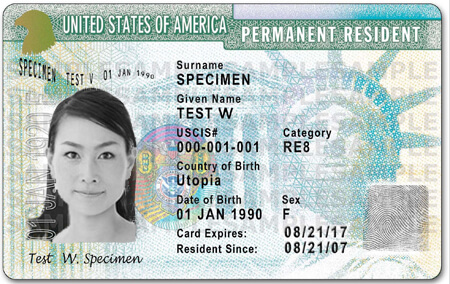Failure to Obtain Medical Help for an Illegal Alien Leads to Enhanced Sentencing for Transporter
 United States v. Muniz (5th Circuit, 2015)
United States v. Muniz (5th Circuit, 2015)
In August 2010, Demi Muniz planned to drive a group of illegal immigrants from Houston to Los Angeles. Just before the trip, one of the passengers appeared lethargic and dehydrated. Muniz contacted the passenger’s wife in Mexico, informing the wife that her husband was ill. The wife told Muniz that her husband was diabetic and needed to go to a hospital. Muniz decided against taking the passenger to the hospital, instead continuing the journey. Along the drive, the passenger began shivering and sweating, and eventually became unresponsive. Muniz dropped the unresponsive passenger off at a rest stop, where he was found dead the next day.
At trial, the jury found that Muniz placed the passenger’s life in jeopardy, and that he died as a result of Muniz’s conduct. Muniz was convicted of conspiracy to transport and conceal illegal aliens, resulting in a person’s death. Incorporating sentencing enhancements, she was sentenced to 85 months in prison, followed by a two-year term of supervised release. Muniz appealed to the United States Court of Appeals for the Fifth Circuit, challenging the district court’s imposition of sentencing enhancements that called for a tougher punishment.
The language of the sentencing enhancements used by the district court, stated the enhancements be used in sentencing for actions that “intentionally or recklessly creat[ed] a substantial risk of death or serious bodily injury” and “caus[ed] another person’s death.”
First, Muniz argued that the district court’s imposition of the enhancements was improper because the manner in which she was transporting the passengers—riding in a van—was not dangerous and because she did not know that the passenger was gravely ill. The Court of Appeals disagreed, saying that reckless conduct includes “abandoning persons in a dangerous…area without adequate food, water, clothing, or protection from the elements.” Here, Muniz abandoned the passenger in an area without medical care.
The Court of Appeals distinguished this case from an earlier decision in United States v. Gomez-Cortez, where a sentencing enhancement did not apply because a passenger who died was not transported in a dangerous manner, and the mere fact that the defendant had been told that the passenger looked ill did not put her on notice that the passenger could not travel at all. 34 F. App’x 152 (5th Cir. 2002). Muniz likely knew the passenger was ill by his dehydrated appearance, by displaying symptoms of being hot and cold, and by the phone call with the passenger’s wife, stating the passenger was diabetic and needed medical attention.
Second, the Court of Appeals stated that district courts properly apply the sentencing enhancement if the defendant’s conduct is a “but-for cause” of a person’s death, consisting of both affirmative acts and omissions. United States v. Ramos-Delgado, 763 F.3d 398, 401-02. Muniz decided not to seek medical treatment for the passenger, even though, as the district court determined, she was within close range of several medical facilities and that according to expert testimony, the passenger likely could have survived with medical care.
The Court of Appeals affirmed the district court’s application of the sentencing enhancements because Muniz’s failure to get medical aid for the passenger under these circumstances placed the passenger at a substantial risk of death or serious injury and caused his death.
A Federal criminal defense attorney in Fort Worth will understand the federal sentencing guidelines and sentencing enhancements for a variety of cases. As you can see from the case above, distinguishing previous case law precedent from the case above had a direct impact on establishing the criteria for sentencing enhancements for the defendant, sentencing enhancements that determined the length and severity of punishment. This essay does not replace legal counsel or advice.










